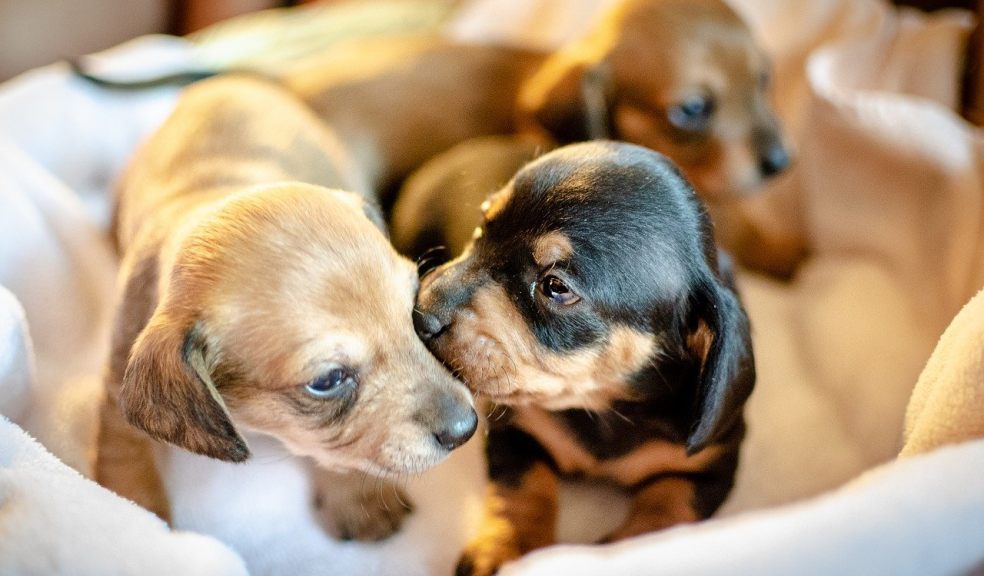
Unlicensed dog breeders: Do you think you could spot one?
The UK is a nation of animal lovers and thanks to the lockdown dog ownership has soared. Unfortunately, as demand rises for our furry friends so too does the volume of unregistered and unlicensed breeders hoping to cash in on the sudden surge in demand.
In this article we look at how you can spot these breeders and help contribute to the protection of animals.
Pandemic Puppy Boom
The BBC recently reported that an additional 3.2 million households in the UK took ownership of a pet during lockdown. Approximately 57% of these new pets were dogs, meaning there are now a record 12 million dogs across the UK. These soaring numbers have been attributed to various things but most commonly as a means to help people cope with the isolation of the successive lockdowns. 74% of people.
If you’re amongst those considering becoming a new puppy parent, there are many things to be concerned about. With a rise in demand for puppies there has also been a rise in abusive breeding practices, often referred to as ‘puppy farming’. On top of this, there has also been a rise in rise in puppy deposit scams. Fraudulent breeders have been taking deposit payments for puppies that don’t exist in a cruel way to cash in on rising demand.
With so many things to worry about, one of the main things that people look for is a breeding licence. While choosing a breeder with a licence is often a good idea, it isn’t as straightforward as you may expect.
Benefits of Using a Licenced Breeder
In most cases, dealing with a breeder who has a licence is a good choice. Although licensing conditions that potential dog breeders must meet vary between licensing authorities, some things are consistent. Most licensing authorities will require an inspection by a vet of premises to ensure that the animals are being looked after appropriately. A background check will also be run, in the form of a Basic DBS Check. This will show whether the breeder has any unspent convictions that may be relevant to a licensing decision being made
Although it is true that checks are carried out on licensees, these checks are normally only required upon receipt of an application for a licence. Once a licence has been obtained, there isn’t necessarily any follow-up inspections, unless the breeder is reported by someone with concerns.
On the flip side, just because someone with puppies for sale doesn’t have a breeding licence, doesn’t mean they aren’t a legitimate operation. Breeders only need a licence if they have a commercial operation. This means they must be breeding at least 3 litters a year and/or actively advertising that they are breeding dogs for sale. People who keep dogs for competitions or other reasons may breed less frequently but produce happy healthy litters in good environments.
With so much to think about it’s useful to have some key things to look out for.
What to look for
The People's Dispensary for Sick Animals (PDSA) advise you to look out for the following when contacting sellers:
- Will they let you see the whole litter in the place they were born? If the breeder you’re contacting will not let you see the premises where the puppies are being bred, this can be a major red flag. They can pretend that this is for your convenience but often, in reality, this is because of the dire conditions where they are being raised.
- Do they try to offer other breeds? If you aren't sure of which puppy you would like to adopt then puppy farmers will often try and offer you different breeds. Most breeders tend to focus on one type of dog rather than multiple different ones.
- Do they ask you questions? Any conscientious animal breeder will have reasonable concerns about the potential welfare of their animals. Responsible breeders will ask you many questions to ensure that they are happy with your situation and whether the dog will be going to a happy healthy home.
- Do they know about the breed? Breeding any animal requires a lot of specialist knowledge. A reputable breeder should be an expert on the type of dog you are inquiring about and be able to answer any questions you might have.
- How does mum react to them? If the dog that the breeder is claiming to be the puppy's mother is scared or nervous around the breeder this could be another red flag. This could be a sign of bad conditions or abuse.
- Are they keen to deal in cash? In this day and age, it is becoming far less common for people to deal with cash. This is particularly true for an expensive purchase like a puppy where a paper trail is useful. If the breeder you are talking to will only accept cash this is likely an operation you should be wary of.
Boom then Bust
The unfortunate cost of the pandemic puppy boom is a sharp rise in abandonments. Since the start of lockdown, the RSPCA has responded to nearly 6,000 cases of dog abandonment. Animal welfare experts are concerned that as the economy reopens and more people return to in-office working, this number is set for an even bigger increase. The charities that rescue these animals are set to be overloaded.
If you are considering bringing a new furry friend into your family, first be sure that you have the time, energy and resources to be able to care for them appropriately. Secondly, consider adopting a rescue dog rather than a puppy. Adopting a rescue can help in the fight against irresponsible puppy farmers by helping diminish their potential client base. If you need any more reasons to adopt rather than buy, check out this article here.




















